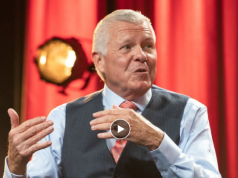The coronavirus crisis has disrupted our individual and collective life rhythms. Rhythm generally means, a movement marked by the regulated succession of strong and weak elements, or of opposite/ different conditions – and we all know there is a rhythm to our professional and personal lives as well. The term “life-work-balance” has been a corporate mantra since the 1980’s, which for decades has caused the rolling of eyes since folks know it is merely a slogan. We think a more realistic approach is needed as we better understand the intersecting rhythms of our personal and professional lives during this new world path.
Think of our lives today as an imaginary trip to the finest amusement park ever built, which hosts the most amazing roller-coaster. The long line to the ride allows us time to prepare for the ride, we feel the excitement, our mind projections can be overwhelming, yet with every step closer the anticipation grows. We finally get to the starting point and see the machine that will carry us – our focus and awareness is at a high level. We get in and buckle up. The snail like movement to the top seems to take forever…then the downward speed seems beyond control. Like in life there are twists and turns, our stomach gets wheezy and our head is spinning. The roller-coaster of life is going at a high speed. Then for some reason it comes to an abrupt halt.
The coronavirus has altered the ride we have come to know as our personal and professional lives, including the role of sports which is central to the rhythm of life for many of us. There are unknowns that may create fears – like the fearful feeling of not knowing what to expect when getting on the roller-coaster ride. We all have experienced emotional upheaval at some point in our lives and using stress and anger management skills are crucial during disruptive times in our lives. What is personal is universal – know the feelings you have, others have, and when we share our feelings, we give permission for others to share theirs. Through this process we are validating each other’s emotions.
Dr. Richard Mollica, Director Harvard Global Mental Health, stated “trauma is inescapable in life”. We are all impacted by this world-wide trauma. Stress is cumulative. Therefore, as this crisis progresses, stress can build each day and like a snowball rolling down a hill – it gets bigger and bigger. How do we slow down stress levels? Accepting the reality versus pretending it does not exist is a first step. For many of us we have gone from going 100 mph to 20 mph and it may even seem slower. This kind of change can be an emotional jolt.
We all have titles in life. For example, Dr. Joel Fish (Sport Psychologist) and Bob Delaney (NBA Referee), are said as if they are part of our names, when in reality, it’s not who we are, but what we do.
“If you are what you do – then when you don’t you aren’t”…are words we learned from the late great author Bob Moawad.
We are much more than our titles, yet there is a reality to the passion and relevance created through our work and for many of us our work rhythm has been thrown off. It has taken on a new form for some by working from home. The co-worker interactions and creativity process are different. Self-awareness during this crisis is vital – “what am I feeling – thinking? “. Mind Health skills and strategies such as, positive self-talk, relaxation, focusing and visualization can be valuable tools for managing emotions. Effective habits to sustain one’s emotional balance are key during this current crisis – maintaining a balanced lifestyle will help create a life rhythm pattern.
The 21st Century approach to learning is similar to how we should eat – small bites for proper digestion and absorption for nourishment. The same process will allow us to create effective mind health habits for emotional balance, allowing us to better navigate the unique life rhythms we are experiencing due to the coronavirus pandemic. We are not suggesting major, drastic changes; rather think of change as one percent at a time that eventually leads to a larger percentage over time.
In the current coronavirus situation, the emotions that come along with the disruptions of our daily routines can feel overwhelming. This is because overnight, we’re being asked to alter our daily habits, structure, and lifestyle.
The coronavirus represents a “perfect storm” to create feelings of anxiety, worry, and fear. That is because of the uncertainty that exists about the virus and how long this limbo state will last. It’s always easier to emotionally get through a crisis when there is a clear beginning, middle, and end to the crisis. With the coronavirus, none of this is apparent at this time.
Sports can teach us so many life lessons. For example, when in uncertain times, the emotional rule of thumb in sports is to “control what you can”. With that in mind, here are a few real-life suggestions on how to cope with the emotional needs that we have during these uncertain times:
Address Emotional Needs In A Positive Way
Positive ways to deal with anxiety, stress, and worry are to talk about these feelings with a few friends and loved ones. Reach out to someone who you may feel is isolated. Other positive ways include exercise as a form of stress reduction, as well as learning stress management and mindfulness techniques. Negative ways to deal with these feelings are through excessive eating, drinking, and medication. Try to be honest with yourself, and with someone that you care about, if you see significant changes in these behaviors, or if you feel that someone is overdoing it in one of these areas.
Recognize That Change Is Difficult
Change is hard. Disrupting our daily routines is going to trigger different emotions. We all have our own defenses to cope with change. Some want to hunker down emotionally, others don’t. The challenge is to identify reasonable behavioral responses to the current situation – not over-reacting, but not under-reacting. Change in a relationship is also an adjustment. Spending more or less time with someone, even someone you really care about, takes a while to get used to.
Limit Social Media
In this world of 24/7 access to information, more information is not always better. Limit updates from social media. Turn off notifications. Be the one who chooses to get these updates, rather than having them thrust upon you.
Be Open To Trying New Leisure Time Activities
In terms of the needs we have for relaxation and entertainment, start with the activities that you like best. With sports out of the equation, the next time you have free time, spend an hour trying something new and different. Recognize that at first, a new activity may seem uncomfortable or awkward. You have to get through this initial phase, before you can get to the next phase, which is possibly feeling more comfortable and liking the new activity.
Respect Individual Differences
Feelings and emotions aren’t always logical. We want our actions and behaviors to be reasonable. Try to listen to other feelings in a non-judgmental way. When listening to someone else, try to put yourself in their shoes. We’re not all clones of one another. The coronavirus situation may trigger different memories from someone’s personal and family life about health, illness, etc.
Within A Crisis There Can Be Opportunity
For example, we often say there are two sides to every coin. As we are forced to alter our lifestyles, there is an opportunity to learn more about ourselves and develop other aspects of our personalities. As uncomfortable as lifestyle changes may be at first, as time goes on, new, surprisingly positive learning experiences may happen.
We are living in uncertain times. With that in mind, when things are unclear, it’s always better to feel connected to others. In sports, teamwork is about celebrating the good times and sticking together to overcome adversity. That is why staying united and connected with one another is so critical at this time.
Reading the full words of the famous 1933 inaugural address by President Franklin D. Roosevelt may serve us well…
” So, first of all, let me assert my firm belief that the only thing we have to fear is…fear itself – nameless, unreasoning, unjustified terror which paralyzes retreat into advance…”.
Another historical message comes from Martin Kleppmann, researcher University of Cambridge, offers this interesting fact;
“In 1665, the University of Cambridge temporarily closed due to the bubonic plague. Issac Newton had to work from home, and he used his time to develop calculus and the theory of gravity.”
Our personal and professional creativity and positive life skills are part of who we are at all times – especially during challenging times. Shadows come to all our lives. We are all living with, and through, the coronavirus shadow. Never fear a shadow, because if there is shadow that means there is light nearby and it is our responsibility to ourselves, our families and each other to find a path to the light. We are confident we will.
Stay Healthy, Stay Safe and Take Care of Each Other!
Dr. Joel Fish is a sport psychologist and licensed psychologist who has worked for more than 25 years with athletes, coaches, officials in all sports from youth through the Olympic, college and professional ranks. He is the Director of the Center for Sport Psychology in Philadelphia.
Bob Delaney, author, has presented world-wide on the subject of Post-Traumatic Stress. Currently attending the Harvard Global Mental Health Trauma Recovery program and is a SEC Special Advisor and NBA Cares Ambassador. Delaney served as a New Jersey State Trooper and NBA Vice President / Director of Officials. He was recently awarded the NCAA’s 2020 President Teddy Roosevelt award.
Copyrighted by Bob Delaney and Dr. Joel Fish and used by Referee Magazine with permission. For reprint information, contact Referee Magazine. Unauthorized use is prohibited.
What's Your Call? Leave a Comment:
Note: This article is archival in nature. Rules, interpretations, mechanics, philosophies and other information may or may not be correct for the current year.
This article is the copyright of ©Referee Enterprises, Inc., and may not be republished in whole or in part online, in print or in any capacity without expressed written permission from Referee. The article is made available for educational use by individuals.



















